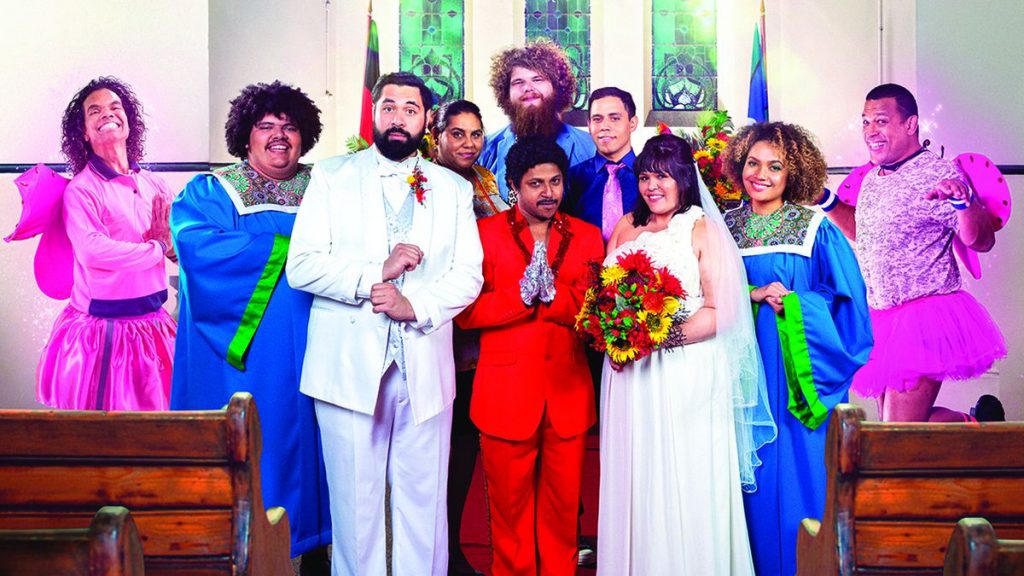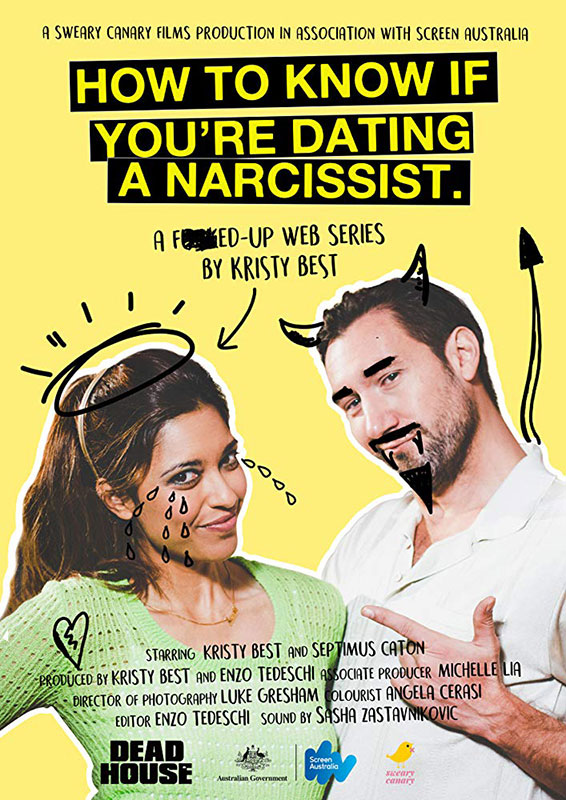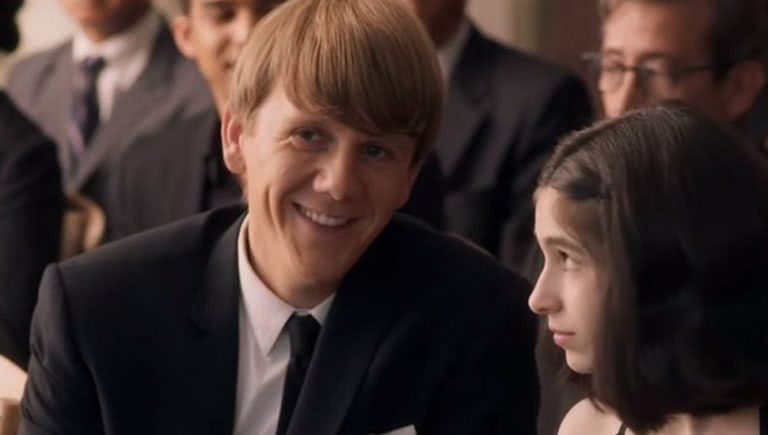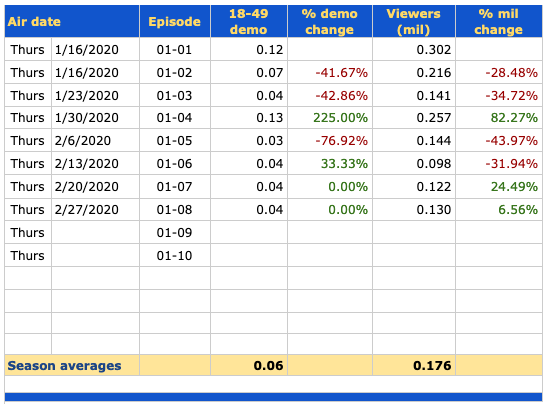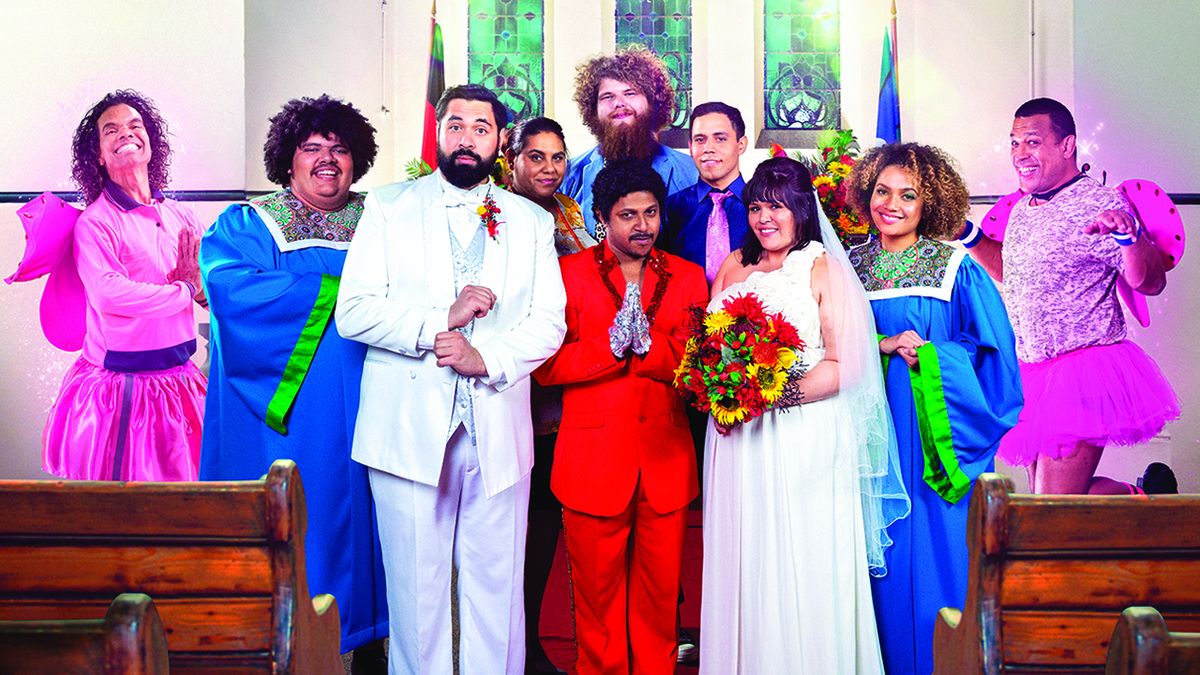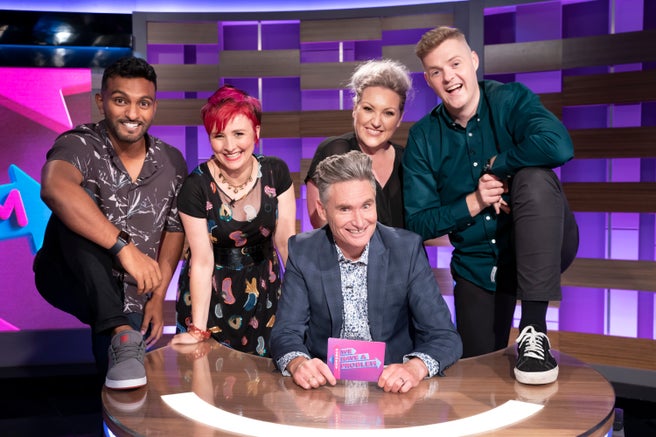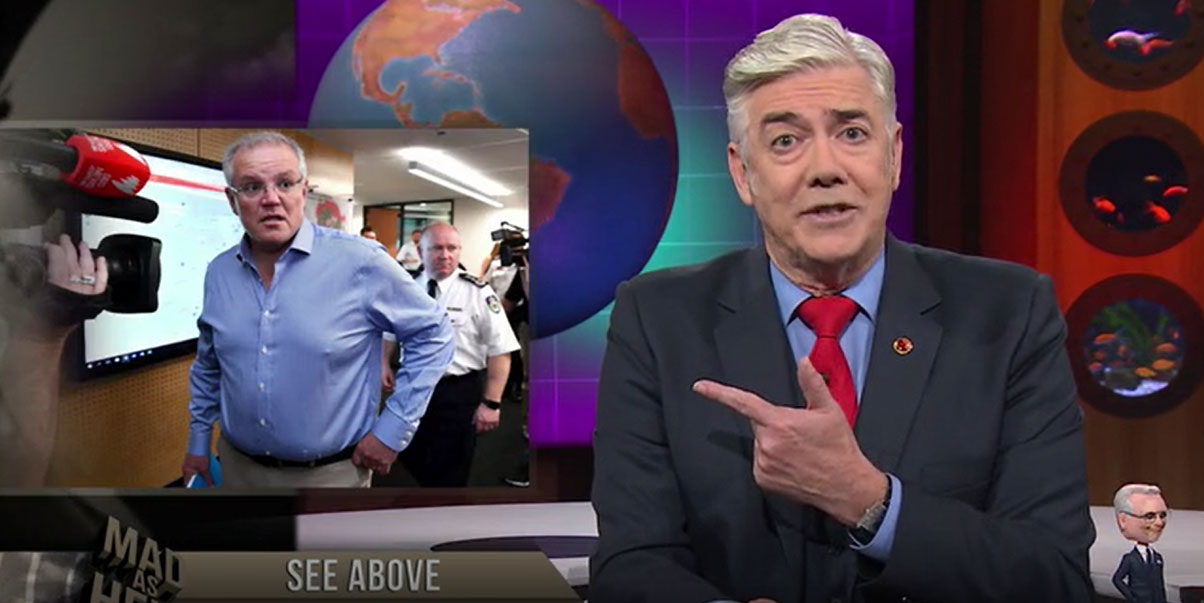Australian Tumbleweeds
Vale Black Comedy season 4
Another season of Black Comedy is over, and by all reports it’s not coming back. How will sketch comedy survive? Supposedly Kinne Tonight is coming back later this year, so looks like it’ll struggle on for a little while yet until someone decides it’s time to revive Fast Forward one last time.
But we came to bury Black Comedy, not praise it. We gave it plenty of praise (by our standards) earlier this year when it seemed fresh and new and not yet another sketch show that kept repeating the same sketches over and over. Sure, Black Comedy at least mixed it up a little, coming up with new ideas each week. And they put real effort into their sketches: the To Kill a Mockingbird parody this week was especially well done.
Unfortunately, it was also a sketch where the joke was some fancy white restaurant had made a “deconstructed bully beef” meal, and while it wasn’t a bad joke, it wasn’t really enough to hang such a lengthy sketch on. Which was often the problem with Black Comedy; the longer the sketch, the thinner the material turned out to be.
That’s disappointing because, all snark about Kinne aside, both it and Black Comedy have made some good first steps towards making Australian sketch comedy less of a joke. Both shows seem to have largely figured out that a decent idea is worth maybe a minute of airtime before you have to do something with it – and if you don’t have any idea what to do with it, move on.
So while Black Comedy did start to get repetitious after a while, at least it only repeated the sketches based on characters rather than concepts. The sketches that went on too long were at least usually broken up into segments, and each segment had at least something going on beyond “we’re still doing this”. There was a clear point of view to most of the sketches too; if you’re going to make a point, it helps to have a clear one in mind.
And the cast seemed to be enjoying themselves, which is more important than a lot of sketch shows seem to realise; a lot of the shorter, sillier ideas worked because they were clearly just piss-farting about.
Okay, maybe we did come to praise Black Comedy a little. It had probably worn out its welcome, but at least it didn’t overstay it.
Recording for Posterity
Press release time!
Amazon today shared the first trailer for ten Australian Amazon Original stand-up specials that will be coming to Prime Video in Australia and around in the more than 200 countries and territories. The roster of award-winning and nominated comedians includes Lano & Woodley, Zoë Coombs Marr, Judith Lucy, Tommy Little, Anne Edmonds, Tom Walker, Celia Pacquola, Dilruk Jayasinha, Alice Fraser and Tom Gleeson. The Australian Amazon Original stand-up specials are produced by Guesswork Television and were filmed in Melbourne at the Malthouse Theatre.
The Australian Amazon Original stand-up specials is exclusively coming to Amazon Prime Video from April 10, with two specials being released each week over a five week period.
That’s actually a pretty impressive line-up – kudos to Amazon for having the cash nous to put together a pretty decent snapshot of the top tier of local stand up. And Tom Gleeson.
Networks doing a series or two of stand up specials are nothing new – Stan had their “One Night Stan” season a few years ago, and before that ABC2 did two seasons of The Warehouse Comedy Festival. But they’re always handy to have around; stand up is one of the few areas left where Australian comedians can really do their own thing for an extended period, and putting their work on television is a reminder of how most of the rest of our televised comedy really is pretty dull.
Especially if you’re watching Tom Gleeson.
Black comedy narcissus
The web series How to Know If You’re Dating a Narcissist was one of five shows given funding by Screen Australia in November 2018. Amongst the other shows announced were Content and Sarah’s Channel, which weren’t exactly amazing. So, is How to Know If You’re Dating a Narcissist a better show? Er, sort of.
We say “sort of” in the sense that while it’s not super hilarious, it’s the kind of show that’s pitched well to the sort of audience who could gain a lot from watching it: teenagers. How to Know If You’re Dating a Narcissist is a no-holds-barred and informative look at manipulative boyfriends*, without feeling like the sort of preachy videos you get shown at school in sex-ed classes.
Spread across six 4-minute episodes, and available on YouTube, How to Know If You’re Dating a Narcissist shows Kristy enact scenes as a woman in love with narcissist Derek (played by Septimus Caton). Derek starts out as the perfect boyfriend, declaring his love for her, booking them a trip to Paris, moving in, and then he turns bad, taking money from her, belittling her, trying to come between her and her closest friends, becoming paranoid about her relationships with other males and even trying to stop her from eating pasta as she’s “getting fat” (she isn’t). This is intercut with analysis of what’s happening from Kirsty and tips for spotting and surviving a narcissist – including an entire episode on how to break up with one.
It’s funny, Kristy and Septimus are brilliant in their roles, and it comes from real-life experience, as Kristy self-describes as a survivor of multiple narcissistic boyfriends. We also like Kristy’s ability to make Derek go to sleep at the click of her fingers (and wish we had that power sometimes).
Finding these videos on YouTube isn’t easy if you search by title, as there are multiple other, more serious takes, on this subject – so here’s a link – but with #MeToo continuing to play out, this remains a highly topical.
You might argue this isn’t strictly a comedy, and that’s true, but it beats the hell out of Content, which started out okay but quickly fizzled out, and Sarah’s Channel, which wasn’t exactly the most hilarious show ever. How to Know If You’re Dating a Narcissist gets points from us for providing a public service and being funny. Something which isn’t easy to pull off.
* Although the advice could apply to a dreadful partner of any gender identity
Choose Me For Me
It’s taken us a while to get around to talking about Josh Thomas’ new series Everything’s Gonna Be Okay because… well, for a lot of reasons really. For one thing, the disconnect between what we see when we watch Thomas on television and what everyone else is telling us they see is currently so great we started to worry we’d finally gone off the deep end.
This was cutting edge comedy? Sure, when we tuned in we saw a show that made us laugh and cry – but our reasons for those reactions just didn’t seem to line up with anything we were reading in the reviews. Especially as they didn’t seem to mention “throwing things at the screen” at all.
Thank goodness then for Esquire magazine, which recently ran a piece titled Josh Thomas Built His Cult Following By Not Overthinking a Single Thing. If you’re like us, then a): we’re so sorry, and b): you might be thinking “hang on, is that title meant to be a good thing or a bad thing?”
“I want them to choose me for me,” Josh Thomas says not long after stepping inside the butterfly conservatory at the American Museum of Natural History in New York. We’ve just been greeted by a greying volunteer with one palm-sized butterfly resting on his cheek and another feasting on an orange slice in his hand, and we’ve made it our mission to get butterflies to land on us, too. How hard could it be?
In 2020 everyone has a pretty good idea how these kind of stories work. Thomas is doing an interview to promote his new show (and himself), Esquire is running the interview in the hopes of attracting Thomas’ fans to their site and/or magazine, and as both parties want roughly the same thing – to make Thomas look good – then the actual point of reading the article is… well, you do the math.
So unsurprisingly this is full of praise for Thomas. Or is it?
Each episode [of Everything’s Gonna Be Okay] is named after an insect that appears in it, from blue death-feigning beetles to giant Asian mantises. The show even has a researcher who provides the writing staff with a dossier of insect fun facts. There’s a perfect metaphor in there—fragile people taking care of fragile things they don’t totally understand—but Thomas admits to putting little thought into it. “I hooked up with this boy and wanted to see him again, but he was leaving to go into the forest to learn about grasshoppers for six months,” he explains. “I thought that was very charming, so I stole it.”
So Thomas doesn’t put much thought into his own show? Surely there’s a more flattering way to put that? “Thomas flies by the seat of his pants”? “Thomas takes his inspiration from the moment”?
Thomas has floppy, sandy-blond hair, deep laugh lines when he smiles, and a borderline-cartoonish voice that makes every vowel a little treat.
Yeah, describing your subject as wrinkly with a cartoony voice is… well, accurate. But not exactly flattering.
To be fair, there are plenty of legitimate compliments here, many of which we’d disagree with.
His portrayals of characters with anxiety and bipolar disorder, many of whom spend time on screen in a mental-health facility, were so judgement-free and melodrama-averse that even the show’s heaviest episodes felt like a balm.
Or they felt like the work of a scriptwriter who didn’t know how to create drama so he ended every season of his show with someone dying (or almost dying)? But as this article says:
Accordingly, he makes television like someone who never learned how: Consider a standout episode of Please Like Me in which Josh and his friends debate whether to kill a pet chicken named Adele that turned out to be a loud rooster, not a hen, then finish the episode with a surprisingly moving singalong to Adele’s “Someone Like You.” Success and a little stubbornness have allowed him to keep making choices even he can’t believe he gets away with—like a surreal drag sequence that interrupts one episode of Everything’s Gonna Be Okay and has nothing to do with, well, anything.
Which does lead to paragraphs like this:
Thomas is a little anxious about how viewers will receive the show’s sixth episode, which features a provocative storyline about autism and consent. But that’s not the part he’s worried about—he’s actually concerned with the episode’s unrelated third act, in which Nicholas and his boyfriend, Alex (Adam Faison), go on a poorly timed vacation to Mexico and get into a fight after Nicholas flips a plate of ceviche over Alex’s head. It sounds dumb, but it works
We’d agree with the first part.
You don’t even have to read between the lines here to get a picture of someone putting together a show based largely on whims and quirky notions. More power to him: it’s brought him this far. But when he says stuff like this:
“That’s the big fight I always have now with every executive: They want me to drive plot more,” Thomas says. “But I don’t really like plot. I just like hanging out with characters.”
It does seem fair to ask: does anyone actually like Josh’s characters? We’ve gone on before about how Thomas’ character in Please Like Me seemed to confuse most reviewers as far as likability goes: his character in Everything’s Gonna Be Okay is, circumstances excepted, basically the same.
And if you thought maybe his character was starting out that way in order to grow and change? No.
Indeed, there are probably Bravo reality programs with more scripted content than Thomas’ shows, where the big life events are often just a formality and the episodes can feel like loose vignettes stitched together.
…
Character development is similarly moot. In Thomas’ universe, nobody really changes or grows up. That he even named his show Everything’s Gonna Be Okay feels like a sly joke, as nothing ever seemed to work out in Please Like Me. Characters who struggled with illnesses didn’t always get better—sometimes they died out of the blue. Couples who seemed like relationship #goals broke up the day they moved in together. Just about everyone ended up back where they started by the series finale.
So let’s recap: Thomas makes shows with no plot where characters don’t change. If you think you’re reading meaning into events, you’re almost certainly wrong. He puts little thought into his show and makes television like someone who never learnt how.
it just felt nice, and sometimes that is enough.
Gee, wonder how that show’s going as far as pulling in viewers?
Well, it certainly seems to have found its level.
Again, to be fair, it’s not the worst rating show on its US network (it’s currently equal worst with s4 of The Bold Type). And all the press Thomas has been doing of late might bring in a few extra viewers. But considering he’s lost over half the audience that tuned in for week one – and aside from a bump in week four, they don’t really seem to be coming back – you’d have to think that there’s not a whole lot of room for improvement.
There are plenty of reasons why a network would want to be in the Josh Thomas business; ratings have never really been one of them. Obviously he pulls in a lot of critical praise, and for a low profile network – or just one that would like a touch of class – that might in itself justify having him around.
When it was announced, nearly everything about Everything’s Gonna Be Okay, from its Disney-owned cable network to its subject matter, suggested ambitious career moves on Thomas’ part… So why Freeform, currently trying to shake off its “family channel” reputation?
You’ve got to love it when a question answers itself.
Back to Black Comedy
It’s probably fair to say that Black Comedy is a variable program. For every good sketch about black/white relations or deadly aunties, there seem to be a fair number which need some work.
The sketch which came to dominate Wednesday night’s episode is a case in point. A grandson and grandmother run out of Bushell’s during a worldwide tea shortage and embark on a quest to find their next cuppa. Along the way, they discover the dreadful things that the “tea-pocalypse” has made people do before eventually realising the true horror of the situation: they must do the same.
This sketch, which was a beautifully made and well-acted pastiche of almost any recent apocalypse/dystopian film you can name, sadly, had one just joke. Which was that some people had run out of tea. We realise that’s more jokes than Josh Thomas has ever put into an entire series (our review of Everything’s Gonna Be OK is coming soon!) but it’s still not good enough.
Sketch comedy is tough – and it requires a lot of ideas to fill six half-hours – but dwelling on just one comic conceit is a bad idea. A better sketch in Wednesday’s episode was the one set in a café, where a white waiter makes a jokey but potentially-aggravating gag about black coffee to an indigenous customer, and then has a minor breakdown in which he questions whether he’s racist or not. As the waiter starts to question his initial comment, he then starts questioning his subsequent thoughts, each thought piling on top of each other until it ends in a sort of mental explosion of racism. It was a very good sketch.
Generally speaking, Black Comedy is on safe comic ground when it tackles white/black relations and plays on the tensions and conflicts. Last week’s key party sketch included a fair number of decent gags on this subject, mostly concerning the white men claiming not to be racists when they purposefully selected the keys belonging the white women. Another sketch in this week’s episode was in a similar vein: a white husband walks in on his white wife just after she’s finished having sex with an indigenous man and desperately tries not to make this a racial matter. “We stole your land so you might as well steal your wife”, he unconvincingly suggests.
We love sketch comedy here at Tumbleweeds Towers and wish there was more of it on TV. And the problems in Black Comedy are far from unique to Black Comedy. Even with a decent budget, a talented cast and a big team of writers, it all comes down to the quality of the material.
What we’d like to see, generally, is a move away from putting to air sketches which contain just one joke or comic idea. Just because they’re short, it doesn’t mean that sketches can’t change and evolve within themselves, ending up as something very different to how they started out. It is a comedy after all, where anything can happen.
Follow the Money
Press release time!
Screen Australia has announced almost $750,000 of Story Development funding for nine feature films, 11 television series and two online projects.
And then there’s a lot of stuff of only marginal interest to anyone reading this, so let’s cut to the good bits – who got the big bucks:
Butch: A six-part online comedy series that follows ex-lovers, Tiff and Gem who are forced to work together to co-parent their all-knowing (and talking) dog, Butch. While Tiff and Gem try to get back out into the dating scene, Butch goes to drastic lengths to bring them back together. This series is created, written and produced by Holly Austin and Zoe McDonald whose credits include writing for Open Slather. They are joined by director Harry Lloyd (What It’s Like to be Queer), along with producers Jamie Houge (Acute Misfortune) and Jenni Tosi (How To Stay Married season 2).
Hair: A seven-part online magic realist comedy about 21-year-old Geraldine who opts for laser hair removal only to discover an incredibly hairy young woman trapped in her shower drain. Geraldine’s reluctance to accept her new found friend’s hairiness begins to expose the tangled relationship she has with her hair and with herself. The creative team features debut writer/director Mohini Herse (director of Instagram series The Out There), producer/writer Yingna Lu (Tangles and Knots) and producer’s attachment Lottie Aspinall (Don’t Forget To Go Home) with contributions from Michelle Law (Homecoming Queens), and writer Natasha Pincus (Fell).
Unbeweavable: An eight-part television series that follows the unlikely friendship between Anna, a Christian who is questioning her faith in God, and Josie, a hairdresser who is haunted by visions of her late grandmother. When the pair meet, they discover that they share electrifying, psychic visions in the form of choreographed musical numbers. While they can’t agree on what these visions mean, both Anna and Josie understand the potential of their newfound power. This musical dramedy sees writers Maria Angelico and Lucy Durack who performed together in Sisters, team up with Sisters co-creator Imogen Banks who will produce. Also attached are director Corrie Chen (Homecoming Queens) and composers Kate Miller-Heidke and Keir Nuttall (Muriel’s Wedding: The Musical). The series will also provide a mentorship opportunity for associate producer, Emelyne Palmer.
But there’s a lot of money to go around, so some people got paid without hitting the jackpot:
Tales From the United Nonsense: Tales from the United Nonsense is an 8 part series that follows the adrenalin fuelled dramatic tragi-comic adventures of the free spirited Janey Resnik, a 39-year-old Australian woman with an undiagnosed white saviour hero complex who – at a tipping point in her life – realises her life-long dream when she is posted to South Asia as a communication consultant for the UN in the politically charged years following 9/11.
Golden Boy (working title): Hassan, a charming young imam, shoots to national headlines when he saves Christmas carolling teenagers from a burning bus. However, he soon learns that the only thing Australia loves more than celebrating a hero, is tearing one down.
Unwell: Believing her partner is experiencing suicidal ideation, Carey panics and fakes a terminal illness in an attempt to keep her alive via distraction.
V: A forgettable introvert discovers that a popular augmented reality game, in her hands, can kill people. Charged with the power to help women in trouble, she reluctantly reinvents herself as a vigilante.
Rough: Needing money to pay for her mother’s funeral, a young woman in a small town turns to the world’s oldest profession in a misguided quest for independence.
And in movies:
Aussie Rules: Three relationship-challenged American women travel to Sydney in pursuit of the Great Australian Male only to land in the middle of Mardi Gras where, one-by-one, all preconceived ideas of Australia are turned upside down.
Once a Queen: Once a Queen is a Cinderella story with a different edge that celebrates the beauty and tradition of three generations of women all connected to the magical town they love which is locked in time. Shirley wants to rule, Lana thinks she wants a prince, Sally just wants to be the Queen!
Petey: Twenty-five years after a daring, cheeky boy became best-friends-forever with a stranded extraterrestrial, the alien is back with a whole lotta baggage and its ready to start a kraktix (translation: family).
How to Please a Woman: When her all-male house-cleaning business gets out of control, a mature woman must embrace her own sexuality, if she is to make a new life for herself.
Digger: Residents of a small town celebrate and embrace a mysterious stranger who is digging a hole in the middle of the desert.
While online we have:
50 Shades of Black (Girl):When Hanna gets mistaken for another, more successful black girl at a gig one night, the recognition and confidence she draws from this experience drives her and best friend Bonnie to conduct an experiment; what else can they get for free by pretending to be other people of colour?
The Emu War: An absurd take on the unbelievable true story of Australia’s war with the native emu (and how the humans were defeated).
She Becomes Her: Following a woman called Sam, She Becomes Her is a musical anthology series that explores the restrictive nature of gender roles and the social narratives that inform our lives.
The Trouble With Unicorns: A couple in their early-30s begin their first non-monogamous adventure, only to find that open relationships aren’t always as liberating as you might think.
… and a number of titles that were described along the lines of “comedy drama horror thriller” so we’ll wait and see how they shake out.
Oh yeah, we forgot to mention there’s a BMX Bandits reboot in there somewhere too. So you know, comedy isn’t entirely dead yet.
All the News that Quits
Press release time!
PAUL HOGAN RETURNS TO THE BIG SCREEN IN THE VERY EXCELLENT MR. DUNDEE
Transmission Films is delighted to announce THE VERY EXCELLENT MR. DUNDEE, starring Australian icon Paul Hogan, will be releasing in cinemas nationally on April 30, 2020.
THE VERY EXCELLENT MR. DUNDEE sees Paul Hogan playing himself and on the brink of receiving a Knighthood for services to comedy. “Don’t do anything to mess this up”, his manager tells him. However, despite all his best efforts, the next 6 weeks sees his name and reputation hilariously destroyed.
Joining Paul is UK comedy legend John Cleese, US comedy legend Chevy Chase, the much loved Olivia Newton-John, Aussie favourites Shane Jacobson, Julia Morris, Rachael Carpani, comedy star Jim Jefferies, Die Hard’s Reggie VelJohnson, Seinfeld’s Wayne Knight with many big international stars also joining the fun with surprise appearances!
THE VERY EXCELLENT MR. DUNDEE is directed by Dean Murphy, who previously worked with Paul on Strange Bedfellows (2004), Charlie & Boots (2009) and That’s Not My Dog! (2018). Murphy, who co-wrote the script with Robert Mond, is also producing, alongside Nigel Odell.
“THE VERY EXCELLENT MR. DUNDEE sees Australia’s favourite larrikin Hoges joined on the big screen by true legends of comedy – what’s not to love? Paul Hogan is an Australian icon, and we’re delighted to continue our association with this living legend,” said Transmission Films Joint Managing Directors Andrew Mackie and Richard Payten.
“Audiences always have a great time with Paul when he’s on screen, but this film is particularly special. People ask what’s true and what’s not… What I do know is fact is certainly funnier than fiction!” said Director Dean Murphy.
THE VERY EXCELLENT MR. DUNDEE is releasing in Australian cinemas on April 30, 2020.
At least Dean Murphy seems to be doing pretty well out of the Paul Hogan business. We’re yet to be convinced the opposite is true.
Also, if you don’t want the “surprise appearances!” spoiled, don’t check out the IMDB page (spoiler: you won’t be spoilt).
Still, at least this looks like it’s trying to be funny – which isn’t exactly something we can say about the latest project from Australia’s other greatest overseas comedy sensation:
After months of anticipation, Pooch Perfect will finally go to air on February 27 at 7.30pm.
Hosted by Rebel Wilson, audiences will see dog groomers from across the country battle it out to give their pups the best hairstyle.
The animals will model their new look on the ‘dog walk’ and be judged by leading dog stylists, Amber Lewin and Colin Taylor.
Geddit? Pooch Perfect sounds like Pitch Perfect, the movie franchise that Rebel Wilson was… uh, in. And when they do a cat version they can call it Pitch Purr-fect! Yeah, we should probably register that trademark before they do.
Otherwise, this is clearly some kind of television show that will be broadcast, and that’s about as far into it as we want to go. Remember when Rebel got a huge payout because Woman’s Day cost her millions of dollars in fat Hollywood paychecks and then she had to give most of it back? Presumably this is how she’s making up the shortfall.
The real question is, if this is the result of her big court reversal, who’s laughing now? Because it’s definitely not us.
Dream a Little Dream
News time!
Stan and Film Victoria today launched a comedy fund designed to help Victorian writers and producers develop Australian comedy with world-class scope and scale.
The joint initiative initially will provide up to $30,000 each for up to four Victorian writers or writer/producer teams to deliver a 30-minute pilot script and series outline.
(taken from here)
So a max of $120,000 a year to develop four comedy series: wonder which single solitary utterly useless executive got fired to fund this? Don’t worry, they’re still got plenty left.
Mind you, it doesn’t take long for the flaw in the system to be revealed:
“We want stories that respond to Stan’s creative brief and feature relatable characters with unique dilemmas fueling the comedy for a multi-season run,” Film Victoria said.
Stan’s brief, which references such shows as Catastrophe, Fleabag, Younger, The Moodys and Broad City, calls for serialised comedy, romcoms and comedy-dramas, but not sitcoms, stand-up or sketch comedy.
Hang on a second – this is a comedy fund that specifically excludes sitcoms and sketch comedy? What the hell did they think The Moodys – good job casually shoehorning that forgotten turd into a list of otherwise world-class shows by the way – was?
Why didn’t they just come out and say what they mean: “we’re looking for the next Josh Thomas”. You know, a story where some upper middle class type finds themselves – through the fault of some currently trendy issue – cast down into a wacky world of “regular” (loser) folk. Also, someone should die.
It’s 2020: if you thought comedy meant jokes and funny situations, wake up to yourself. Today, “comedy” means drama, only the characters occasionally say something that might get a chuckle at one of the producer’s dinner parties.
Stan’s chief content officer Nick Forward said: “We had an outstanding response to the Stan and Film Victoria Development Fund for premium drama projects last year and are thrilled to continue our partnership with Film Victoria in 2020.
“Our focus is always firmly set on finding the next must-watch Stan Original Series and we’re expecting big things from Victoria’s world renowned comedy community. My advice to creatives submitting their pitches this year: Go big. Be bold. And hold nothing back.”
(except for any jokes you might have in mind, you won’t be needing those)
Film Victoria CEO Caroline Pitcher added: ““We’re excited to have partnered with Stan to find irresistible comedy ideas that have an essence that is unmistakably Australian and which will resonate with audiences around the world.”
And there you have it: please come up with something unmistakably Australian yet at the same time make sure we can get some overseas sales. We’re guessing by “essence” they mean “location”, while the “resonate” part really means “seem familiar to”.
But at least it’ll be a valuable foot in the door right? An important stepping stone on your way to a real career?
The fund is open to up-and-coming creative talent as well as established players.
So good news! Even if you become an “established player”, this is the kind of bullshit you’ll be dealing with your entire career.
99 Problems and Hughsey Ain’t One
After its strong showing in the most recent Tumblies, we figured it was time we checked back in on Hughesy, We Have a Problem. Yeah, thanks for that. Much appreciated.
Two things immediately come to mind:
1): Do Hughsey and Wil Anderson go to the same barber, and if so, why?
2): Who thought turning a drive radio call-in segment into an hour-long show was a good idea?
Yeah, we know that this is basically a more diverse version of the old Beauty and the Beast format, but watching this week’s episode – which, as is often the case with this show, had a reasonable cast: Tom Ballard, Nazeem Hussain, Cal Wilson and Meshel Laurie – it really was obvious that this is just a radio call in show with pictures. Pictures that don’t add much unless you’re a big fan of Hughsey chortling away. Which is still better than the way he delivers his lines like he’s shouting in a wind tunnel.
That’s not to say radio call-ins don’t have their charms, what with them being massively popular all over the world, and this does manage to mix it up a little. There’s a mystery celebrity guest, video questions, someone from the audience comes up to discuss their problem (this week: my pick-up game is weak, let’s do some role-play, Tom Ballard says “poofta juice”), there’s banter, more banter, a third round of banter…
The original Beauty and the Beast could be a pretty snarky show at times, and with a regular cast there was plenty of scope for bitchiness and character comedy. This doesn’t have much of that – apart from a fairly consistent hanging of shit on Hughsey, which we’re all on board for. Instead we get the usual battle of the guests trying to out-funny each other, which usually means there’s four people trying to do basically the same thing and results in a show that’s both exhausting and somehow boring at the same time. This kind of show used to be filed under “variety”, and a bit more variety comedy-wise wouldn’t hurt here.
This is pretty much the polar opposite of Have You Been Paying Attention? It’s a more relaxed format, the guests get to chat away, Hughsie is… inexplicably popular, and this week at least everyone got in a few cracks about his obscene wealth and him murdering one of his tenants who didn’t pay rent on time. Anything that shifts the narrative from “Hughsey, knockabout average Aussie” to “Hughsey, extremely rich man who could buy and sell you in a heartbeat” is fine with us.
As is this show in general, if we’re being honest. It’s established enough now to attract decent panelists – Judith Lucy and Shaun Micallef were on last week – and while nobody’s letting rip with the classic gags they’re generally strong enough to leave the show feeling like actual comedy and not something Rove might host.
Let’s not get carried away with the praise though either: this could still easily lose ten minutes or so, even if it’s hardly a show you’re going to give your attention to for the full hour. If you’re not watching this looking down at your phone then you’re not doing it right; maybe radio with pictures really is the future of television.
Sweetly crackin’ winners through the gap
If we can take anything from the last few months worth of news, it’s that the Morrison government doesn’t give an actual damn. Climate change? Nah, don’t worry about it. Money to sports clubs in marginal electorates? Here’s a truckload! All of which should give our satirists plenty to talk about, you’d think.
Mark Humphries’ first sketch of the year for 7.30 focused on the Sports Rorts scandal. It started off as a parody of Wide World of Sports, in which two hosts analyse what happened, before throwing to an ad break, during which there are several spoof ads for products that may be of interest to rorting politicians. All fair enough as targets for satire, of course, but not especially hilarious. So, standard stuff from Humphries, there.
Sammy J, meanwhile, re-wrote late-1970s cricketing anthem C’mon Aussie C’mon! as C’mon Pollies C’mon!, an entreaty to our leaders to lift their game when it comes to bushfires, global warming, sports funding and various other current issues. He’s done better – and there’s a problem here, in that the song is too fun and upbeat to properly convey his anger and frustration at the political class – but it’s hard to argue with the intended sentiment.
Meanwhile, on Shaun Micallef’s Mad As Hell, Micallef only needs to put a small pause between ‘Our Prime Minister’ and ‘Scott Morrison’ to get a laugh (and make a point). And he’s been doing that exact joke and making that exact point (albeit with a range of different Prime Ministers) for years.
So, why is Micallef’s pause funnier than two whole entire sketches? Well, what it comes down to is the quality and uniqueness of the observation being made.
Most of us have spent the last few months, nay years, wishing our politicians were better. And not just our politicians, most of the world’s politicians, frankly. So, several minutes of song, repeating that one thought over and over again, isn’t really going to cut it when it comes to satire.
Similarly, the fact that certain sports clubs only got funding because they were in marginal elections, isn’t news to us. Because, you know, we’ve seen the news. So, to make us laugh there’s got to be a new observation in there.
Whereas Micallef’s pause? Sure, it wasn’t a new observation either – the high turnover of Prime Ministers in the last decade or so has been much talked about – but it was funny because it didn’t labour the point. It didn’t spend two and a half minutes on this one observation, it spent less than a second on it.
And every time it gets repeated, it’s perfectly timed – and, crucially, surrounded by jokes about other things. It’s not the same point being made matter-of-factly for several minutes, which is what you get in C’mon Pollies C’mon and Mark Humphries’ work. Or, to put it another way, it doesn’t feel so much like a lecture.
Cynics reading this blog probably think this is yet another love letter to Mad As Hell from Australian Tumbleweeds, or something. But it’s not. This is a plea to our satirists to raise their game. C’mon Satirists C’mon! in other words.

